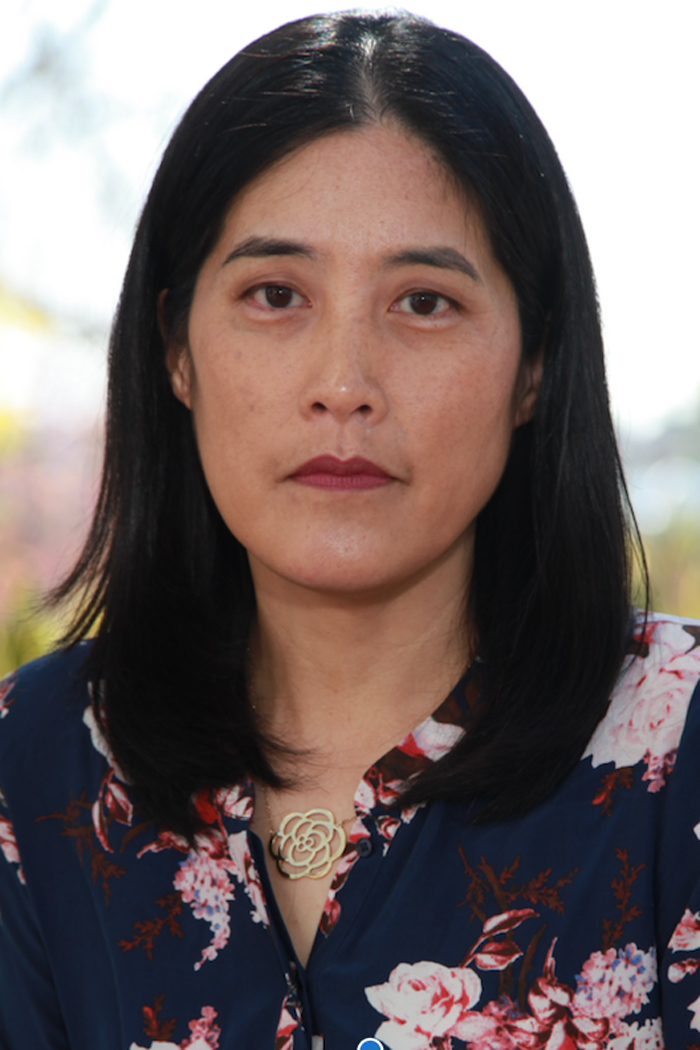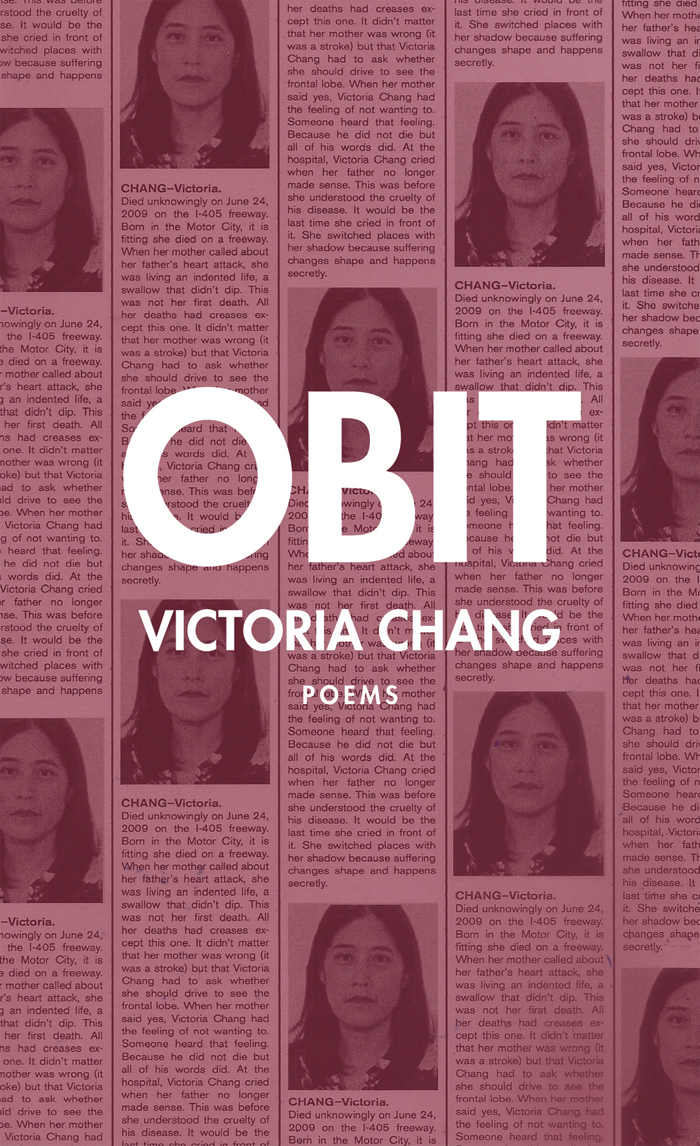Voice Mail—died on June 24, 2009,
the voice mail from my father said
Transcription Beta (low confidence),
Hello hi um I may be able to find
somebody to reduce the size of the
car OK I love you. The Transcription
Beta had low self-esteem. It wandered
into the river squinting and came back
blind. The Transcription Beta could not
transcribe dementia. My father really
said, I’ll fold the juice, not I love you.
Is language the broom or what’s being
swept? When I first read I love you,
some hand spun a fine thread around
my lungs and tightened. Because my
father had never said that to me before.
In the seconds before realization of the
error, I didn’t feel love, but panic. We
read to inherit the words, but something
is always between us and the words.
Until death, when comprehension and
disappearance happen simultaneously.
the voice mail from my father said
Transcription Beta (low confidence),
Hello hi um I may be able to find
somebody to reduce the size of the
car OK I love you. The Transcription
Beta had low self-esteem. It wandered
into the river squinting and came back
blind. The Transcription Beta could not
transcribe dementia. My father really
said, I’ll fold the juice, not I love you.
Is language the broom or what’s being
swept? When I first read I love you,
some hand spun a fine thread around
my lungs and tightened. Because my
father had never said that to me before.
In the seconds before realization of the
error, I didn’t feel love, but panic. We
read to inherit the words, but something
is always between us and the words.
Until death, when comprehension and
disappearance happen simultaneously.





